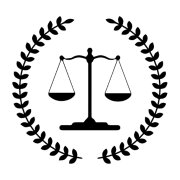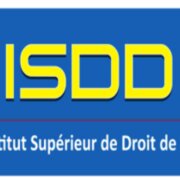Best Conveyancing Lawyers in Senegal
Share your needs with us, get contacted by law firms.
Free. Takes 2 min.
Free Guide to Hiring a Real Estate Lawyer
Or refine your search by selecting a city:
List of the best lawyers in Senegal
About Conveyancing Law in Senegal
Conveyancing in Senegal refers to the legal process involved in the transfer of ownership of real estate and property from one party to another. This process is governed by the country’s land laws and requires strict compliance with both regulatory procedures and documentation requirements. In Senegal, the conveyancing process typically covers the sale and purchase of land or property, registration of ownership, checking for encumbrances, and ensuring all taxes and duties are paid. Conveyancing ensures that the interests of both buyers and sellers are protected and that transactions are legally valid and enforceable.
Why You May Need a Lawyer
Engaging a lawyer during a conveyancing transaction in Senegal is crucial for several reasons. First, property laws can be complex and are often written in legal French, which may not be accessible to everyone. A lawyer ensures that all documents are properly drafted and reviewed for legal compliance. Common situations where you may need legal help include:
- Buying or selling land or real estate
- Transferring property between family members or heirs
- Resolving disputes over property boundaries or ownership
- Registering a newly acquired property with the authorities
- Verifying the legal status and history of a property
- Clearing outstanding debts, taxes, or mortgages tied to a property
Whether you are a first-time buyer, a seller, or dealing with property inheritance, professional legal guidance can help you avoid common pitfalls, fraud, or legal disputes down the line.
Local Laws Overview
Conveyancing in Senegal is primarily regulated by the Code Foncier (the Land Code), which establishes the legal framework for land and property transactions. Key aspects to be aware of include:
- Title Verification: Ensuring the seller has legal ownership and the right to transfer the property.
- Land Registration: All land transactions must be registered with the Direction de la Conservation Foncière (Land Registry Office) for full legal effect.
- Due Diligence: Checking for existing mortgages, liens, or legal restrictions on the property.
- Notarial Involvement: Notaries play a critical role in drafting and authenticating sale and purchase agreements.
- Taxes and Fees: Parties must pay stamp duties, registration fees, and sometimes capital gains tax.
- Foreign Ownership: While foreigners can generally own property, special approval may be required in certain areas, such as near international borders or rural zones.
Failure to follow established legal procedures can result in ownership disputes or the transaction being declared void.
Frequently Asked Questions
What documents are needed to sell or buy property in Senegal?
Essential documents include the title deed, seller and buyer identification, proof of property tax payments, and a written sale agreement authenticated by a notary. Additional paperwork may be required for properties with shared ownership or special designations.
How long does the conveyancing process take?
The conveyancing process in Senegal can take several weeks to a few months, depending on the complexity of the transaction and the efficiency of local authorities. Delays may occur if additional verification or clearances are necessary.
What are the main risks when purchasing property?
Main risks include unclear ownership, unpaid taxes, outstanding mortgages, land disputes, and fraudulent documentation. Engaging a lawyer and conducting comprehensive due diligence significantly reduces these risks.
Who is responsible for paying transaction taxes and fees?
Typically, both the buyer and seller share responsibility for various fees. The buyer often pays for registration and stamp duties, while the seller may cover certain transfer taxes. The division can be negotiated as part of the sale agreement.
Can foreigners buy property in Senegal?
Yes, foreigners can generally buy property in Senegal, but may need official approval for specific categories of land, particularly in rural or border areas. It is advisable to consult with a lawyer on current regulations affecting non-citizens.
What role does a notary play in Senegalese conveyancing?
A notary is a government-authorized official who prepares, reviews, and authenticates sale and purchase agreements, ensuring they comply with legal standards. Notarial involvement is mandatory for registering transactions and making them legally binding.
How is property ownership proved in Senegal?
Ownership is typically established through a registered title deed. This deed is issued and officially stamped by the Land Registry Office once all legal requirements have been fulfilled and fees paid.
What happens if there is a dispute over property boundaries?
If a boundary dispute arises, parties can first attempt mediation. If unresolved, the matter may be taken to court for a legal resolution. Lawyers play a critical role in gathering evidence and representing clients throughout the process.
Can property be gifted or inherited in Senegal?
Yes, property can be transferred through gifts or inheritance. Specific legal procedures apply to each case, including the involvement of notaries and compliance with inheritance laws, especially regarding family rights and succession.
What is the process for registering a property title?
Registration involves submitting the sale or transfer agreement, along with proof of payment of taxes and fees, to the Land Registry Office. The office reviews, stamps, and issues a registered title deed, completing the legal transfer of ownership.
Additional Resources
For individuals needing help with conveyancing in Senegal, consider approaching these resources:
- Direction de la Conservation Foncière (Land Registry Office): Official body responsible for land registration and title verification.
- Chambre des Notaires du Sénégal (Notaries Chamber): Regulates notaries and provides guidance on notarial procedures.
- Order of Lawyers of Senegal: Directory of licensed lawyers and legal consultants skilled in property law.
- Ministry of Urban Planning and Housing: Oversees regulatory frameworks for real estate and urban property.
- Local municipal offices: Can assist with tax matters and land planning regulations.
Visiting these organizations or contacting them directly can provide further assistance, official forms, and current regulatory updates.
Next Steps
If you require legal assistance in conveyancing, consider following these steps:
- Make a list of your objectives, including the kind of transaction or property involved.
- Gather all relevant documents such as IDs, existing deeds, and tax receipts.
- Contact a qualified lawyer or notary specializing in property transactions.
- Request a clear outline of the expected costs, timelines, and legal requirements.
- Work closely with your legal advisor to conduct due diligence and ensure full legal compliance.
- Follow through with all formalities, including tax payments and official registration steps.
Taking proactive steps with professional legal guidance is the best way to safeguard your interests in any conveyancing transaction in Senegal.
Lawzana helps you find the best lawyers and law firms in Senegal through a curated and pre-screened list of qualified legal professionals. Our platform offers rankings and detailed profiles of attorneys and law firms, allowing you to compare based on practice areas, including Conveyancing, experience, and client feedback.
Each profile includes a description of the firm's areas of practice, client reviews, team members and partners, year of establishment, spoken languages, office locations, contact information, social media presence, and any published articles or resources. Most firms on our platform speak English and are experienced in both local and international legal matters.
Get a quote from top-rated law firms in Senegal — quickly, securely, and without unnecessary hassle.
Disclaimer:
The information provided on this page is for general informational purposes only and does not constitute legal advice. While we strive to ensure the accuracy and relevance of the content, legal information may change over time, and interpretations of the law can vary. You should always consult with a qualified legal professional for advice specific to your situation.
We disclaim all liability for actions taken or not taken based on the content of this page. If you believe any information is incorrect or outdated, please contact us, and we will review and update it where appropriate.
Browse conveyancing law firms by city in Senegal
Refine your search by selecting a city.












